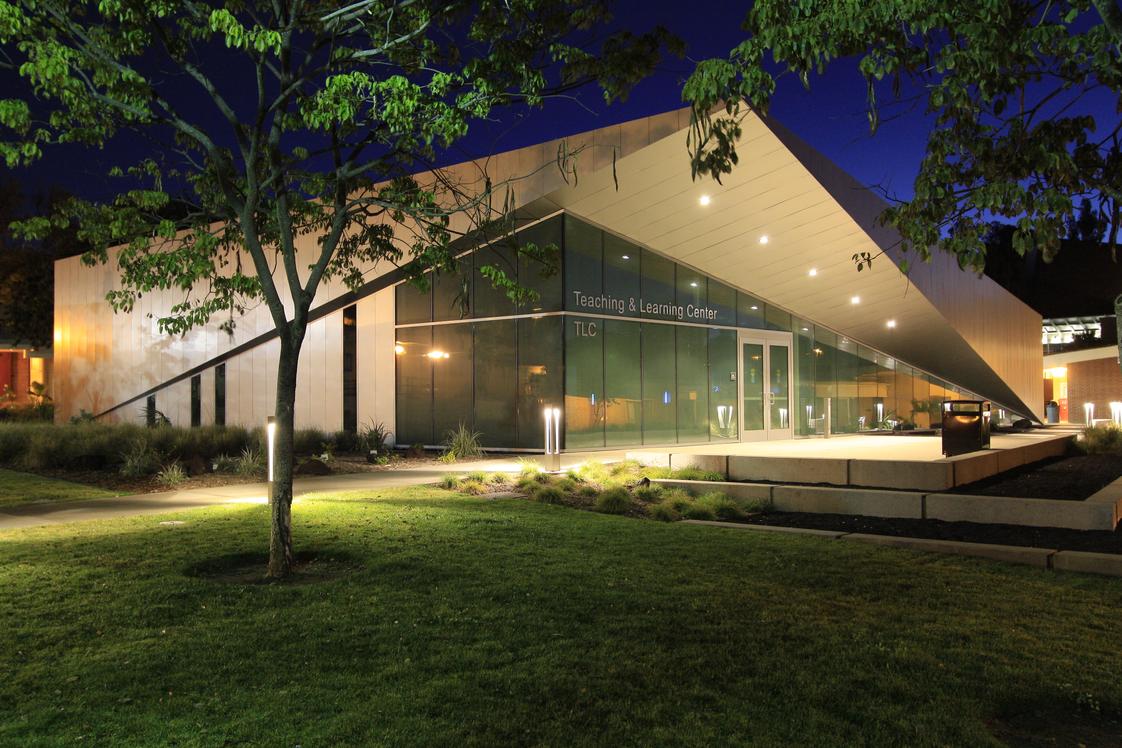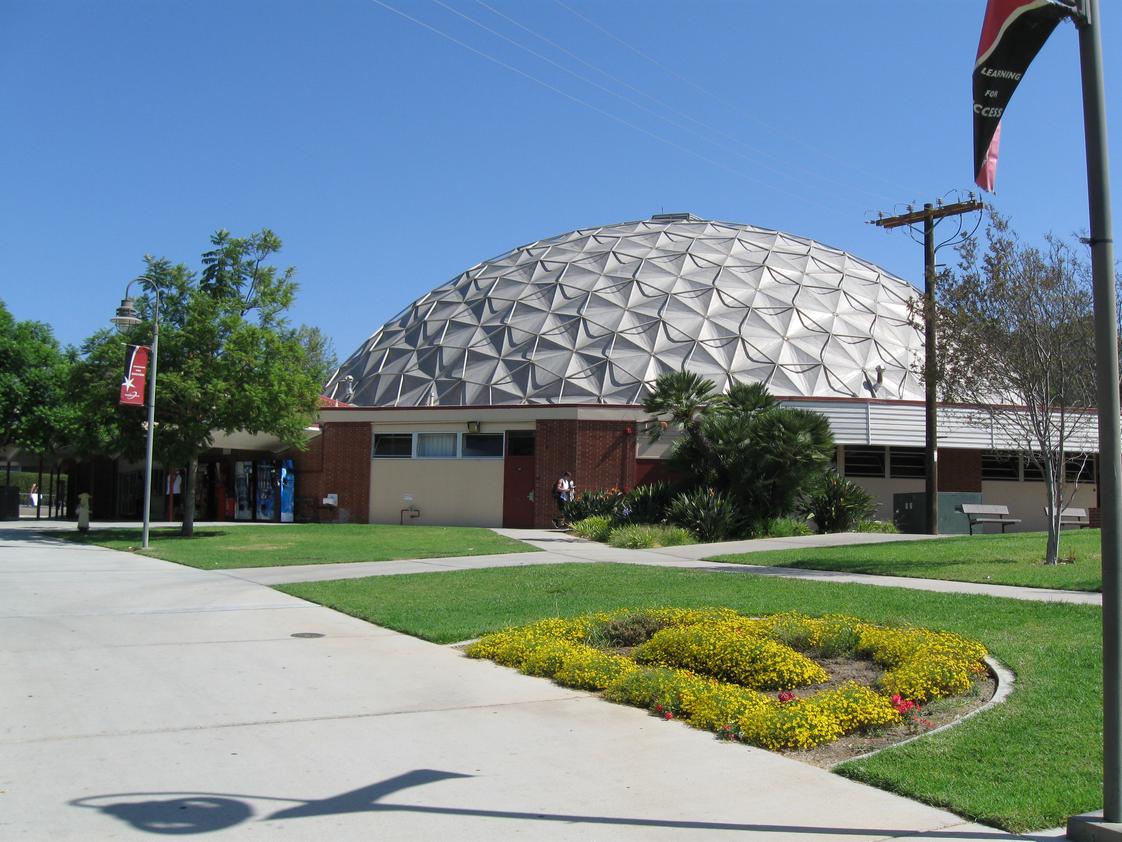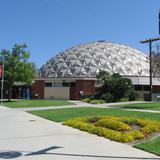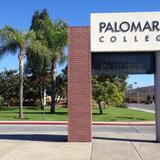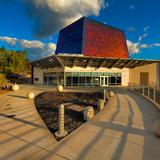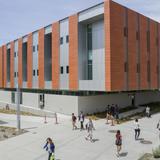- Palomar College is an educational leader committed to quality learning. We provide our community the knowledge, information, skills, and aesthetic appreciation necessary to live responsibly, effectively, and creatively in an interdependent and changing world.
School Highlights
Palomar College serves 25,877 students (25% of students are full-time).
The college's student-teacher ratio of 25:1 is lower than the state community college average of 32:1.
Minority enrollment is 66% of the student body (majority Hispanic), which is less than the state average of 77%.
Quick Facts (2026)
- Enrollment: 25,877 students
- In-state tuition: $1,336
- Out-state tuition: $7,386
- Student-teacher ratio: 25:1
- Minority enrollment: 66%
- Source: Integrated Postsecondary Education Data System (IPEDS)
Top Rankings
Palomar College ranks among the top 20% of public schools in California for:
Category
Attribute
Community Size
Debt For Students
School Overview
The teacher population of 1,051 teachers has stayed relatively flat over five years.
Palomar College
(CA) Community College Avg.
Carnegie Classification
Associate's Colleges: Mixed Transfer/Career & Technical-High Traditional
Baccalaureate/Associate's Colleges: Associate's Dominant
Institution Level
At least 2 but less than 4 years
At least 2 but less than 4 years
Institution Control
Public
Public
Colors
Scarlet, Silver
Total Faculty
1,051 staff
315 staff
School Calendar
Student Body
The student population of Palomar College has grown by 22% over five years.
The student-teacher ratio of 25:1 has decreased from 44:1 over five years.
The Palomar College diversity score of 0.65 is less than the state average of 0.70. The school's diversity has stayed relatively flat over five years.
Total Enrollment
25,877 students
9,796 students
Student-Teacher Ratio
25:1
32:1
# Full-Time Students
6,510 students
1,259 students
# Part-Time Students
19,367 students
8,537 students
# Enrollment Undergraduate
258 students
242 students
# Full-Time Undergraduate Students
6,510 students
1,250 students
# Full-Time Graduate Students
n/a
63 students
# Part-Time Undergraduate Students
19,367 students
8,299 students
# Part-Time Graduate Students
n/a
10 students
Total Dormitory Capacity
n/a
121 students
% American Indian/Alaskan
1%
n/a
% Asian
7%
13%
% Hispanic
47%
47%
% Black
3%
7%
% White
34%
23%
% Hawaiian
n/a
1%
% Two or more races
6%
5%
% Non Resident races
n/a
1%
% Unknown races
1%
3%
Diversity Score
0.65
0.70
College Completion Rate (Students who graduate in less than 4 years)
31%
42%
College Completion Rate (Students who graduate in 4 years or more than 4 years)
n/a
43%
Average Graduate Earnings (10 Years)
$37,200
$34,700
Tuition and Acceptance Rate
The public in-state tuition of $1,336 is less than the state average of $1,516. The in-state tuition has stayed relatively flat over four years.
The public out-state tuition of $7,386 is more than the state average of $6,779. The out-state tuition has declined by 23% over four years.
In-State Tuition Fees
$1,336
$1,516
Out-State Tuition Fees
$7,386
$6,779
% Students Receiving Some Financial Aid
79%
85%
Median Debt for Graduates
$6,500
$10,063
Median Debt for Dropouts
$3,500
$6,239
Acceptance Rate
n/a
93%
Sports
Total Sports Offered
13 sports
Sports
BaseballBasketball
CheeringCross Country
FootballSoccer
SoftballSwimming
TennisTrack and Field
VolleyballWater Polo
Wrestling
Extracurriculars
Total ExtracurricularsTotal Extra-curric.
24 extracurriculars
ExtracurricularsExtra-curric.
Club or Organization:
Arts and Music Programs:
Active MindsBlack Student Union
Chem ClubChild Development Club
Circle K InternationalEMS Club
Fashion ClubFire Technology Students
Foster Youth ClubGender and Women's Studies Club
Geo-Science Connection ClubGSA
International Student ClubInterVarsity Christian Fellowship
Latter Day Saint Student AssociationMEChA
Muslim Student UnionNASA
No Limits Club
Arts and Music Programs:
Palomar / Pacific Coast Concert BandPalomar Chamber Ensemble
Palomar ChoralePalomar Symphone Orchestra
Palomar Women's Chorus
Source: 2024 (or latest year available) Integrated Postsecondary Education Data System (IPEDS) , School Administrators
School Notes
- School Mascot: Comet, Comets
- Palomar College is a public two-year community college. The Palomar campus is located in San Marcos, California, approximately 30 miles north of San Diego. Palomar enrolls approximately 30,000 full-time and part-time students. Residents of California are charged only $46 per unit. At Palomar, students may choose from over 300 associate degree and certificate programs, complete the first two years of a bachelor's degree, or enjoy personal enrichment classes for lifelong learning. Palomar College is one of 108 colleges in the California Community Colleges system and eight in San Diego County. Located in San Marcos, California, our 200-acre main campus is nestled at the foot of the region's rolling coastal hills and valleys in a lovely area once named Los Vallecitos de San Marcos (Little Valleys of St. Mark) by Spaniard settlers in 1797. In addition to our main campus in San Marcos, we operate an educational center in Escondido, and five smaller centers throughout north San Diego County, in Rancho Penasquitos, Fallbrook, Ramona, Pauma Valley, and Camp Pendleton. Palomar College offers more than 300 Associates Degree and certificate programs, as well as not-for-credit community development and personal enrichment classes for life-long learning. We have transfer agreements with the California State University and University of California systems, and our high-level coursework in transferable classes fully prepares our students for success at four-year colleges and universities. In fact, Palomar students who transfer perform better in their first year at a four-year college than students from other community colleges. Our five academic divisions are: Arts, Media, Business and Computer Systems; Career, Technical and Extended Education; Languages and Literature; Mathematics and The Natural and Health Sciences; and Social and Behavioral Sciences. Palomar College serves as a cultural hub of north San Diego County. Our 400-seat Howard Brubeck Theatre is the scene of highly-regarded dramatic, dance, and musical productions throughout the year. Palomar College has nearly two dozen athletic teams in about one dozen sports, including men's and women's basketball, volleyball, tennis, soccer, swimming, water polo, and cross country. Palomar College is an educational leader committed to quality learning. We provide our community the knowledge, information, skills, and aesthetic appreciation necessary to live responsibly, effectively, and creatively in an interdependent and changing world.
Frequently Asked Questions
How much does Palomar College cost?
Palomar College's tuition is approximately $1,336 for In-State students and $7,386 for Out-State students.
What sports does Palomar College offer?
Palomar College offers 13 interscholastic sports: Baseball, Basketball, Cheering, Cross Country, Football, Soccer, Softball, Swimming, Tennis, Track and Field, Volleyball, Water Polo and Wrestling.
What is Palomar College's ranking?
Palomar College ranks among the top 20% of community college in California for: Largest student body and Least debt for graduating students.
Recent Articles

Community College vs. Bootcamps for Tech Careers in 2026
Community college vs. bootcamps in 2026. Compare cost, outcomes, credentials, and hiring trends to choose the best tech career path.

How to Build a Class Schedule That Fits Your Life (Spring 2026)
Learn how to build a class schedule that fits your life with expert tips, updated strategies for Spring 2026, and practical planning tools for students and families.

Top 10 Jobs for Community College Graduates in 2026
Meta Description: Discover high-demand jobs for community college graduates, with current salary trends, costs, and career pathways.

